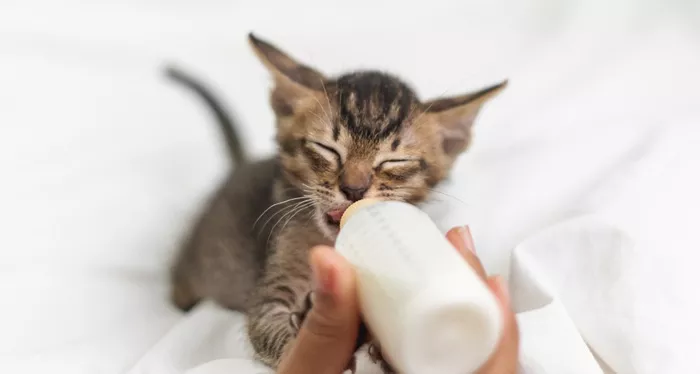Newborn kittens are delicate creatures. They need special care to grow strong and healthy. If you find yourself caring for newborn kittens, knowing what to give them is crucial. This guide covers everything from nutrition to warmth, hygiene, and health checks.
Understanding Newborn Kittens
The First Few Weeks
Kittens are born blind and deaf. They rely completely on their mother for survival. The first two weeks are critical. Without proper care, they may not survive.
Signs of a Healthy Kitten
A healthy kitten will:
- Squirm and make small noises.
- Have a round belly after feeding.
- Gain weight steadily.
If a kitten seems weak or cold, it needs immediate attention.
Essential Supplies for Newborn Kittens
Mother’s Milk is Best
The best food for newborn kittens is their mother’s milk. It contains colostrum, which boosts their immune system. If the mother is present, let her nurse the kittens.
Kitten Milk Replacer (KMR)
If the mother is absent, you’ll need KMR. Never give cow’s milk—it can cause diarrhea. Use a high-quality formula like PetAg KMR.
How to Feed:
- Use a small bottle or syringe.
- Feed every 2-3 hours, including at night.
- Warm the milk to body temperature (about 100°F).
Warmth and Comfort
Newborn kittens cannot regulate their body temperature. They need a warm environment.
- Heating Pad or Hot Water Bottle
- Place a heating pad under half of their bedding.
- Set it to low heat to avoid burns.
- Wrap it in a towel for safety.
- Soft Bedding. Use soft blankets or fleece. Avoid towels with loose threads—kittens can get tangled.
Hygiene and Cleaning
Stimulating Elimination. Kittens cannot pee or poop on their own. The mother usually licks them to stimulate elimination. If she’s not around, you must do this.
How to Help:
- Use a warm, damp cotton ball.
- Gently rub the kitten’s genital area after each feeding.
- They should urinate every time and defecate once a day.
- Keeping the Nest Clean
- Change bedding daily. Dirty nests can lead to infections.
Health Monitoring
Weigh kittens daily. They should gain about 10-15 grams per day. If a kitten loses weight, see a vet.
Signs of Illness:
- Weakness or lethargy.
- Crying nonstop.
- Cold ears or paws.
- Diarrhea or no bowel movements.
If you notice these signs, contact a vet immediately.
Transitioning to Solid Food
When to Start
At about 3-4 weeks, kittens begin exploring solid food.
Best First Foods
Wet kitten food mixed with KMR. High-quality dry kitten kibble soaked in warm water.
How to Introduce Solids:
- Offer small amounts on a shallow plate.
- Let them lick it off your finger if needed.
- Gradually reduce liquid as they learn to eat.
Weaning Process
By 6-8 weeks, kittens should eat solid food fully. Continue providing KMR until they are fully weaned.
Handling Kittens
Gently handle kittens daily. This helps them get used to humans.
Introducing Toys
At 4-5 weeks, introduce soft toys. Avoid small objects they could swallow.
Common Mistakes to Avoid
Feeding Cow’s Milk
Cow’s milk is harmful. It causes stomach upset and diarrhea. Always use KMR.
Overhandling
Too much handling can stress kittens. Limit handling to feeding and cleaning in the first weeks.
Ignoring Weight Loss
If a kitten isn’t gaining weight, act fast. Weak kittens can deteriorate quickly.
Conclusion
Caring for newborn kittens is rewarding but requires effort. Proper nutrition, warmth, hygiene, and health checks are key. With the right care, they will grow into healthy, happy cats. Remember, if you’re ever unsure, consult a vet. Your care can make all the difference in their survival.
Related Topic:


























